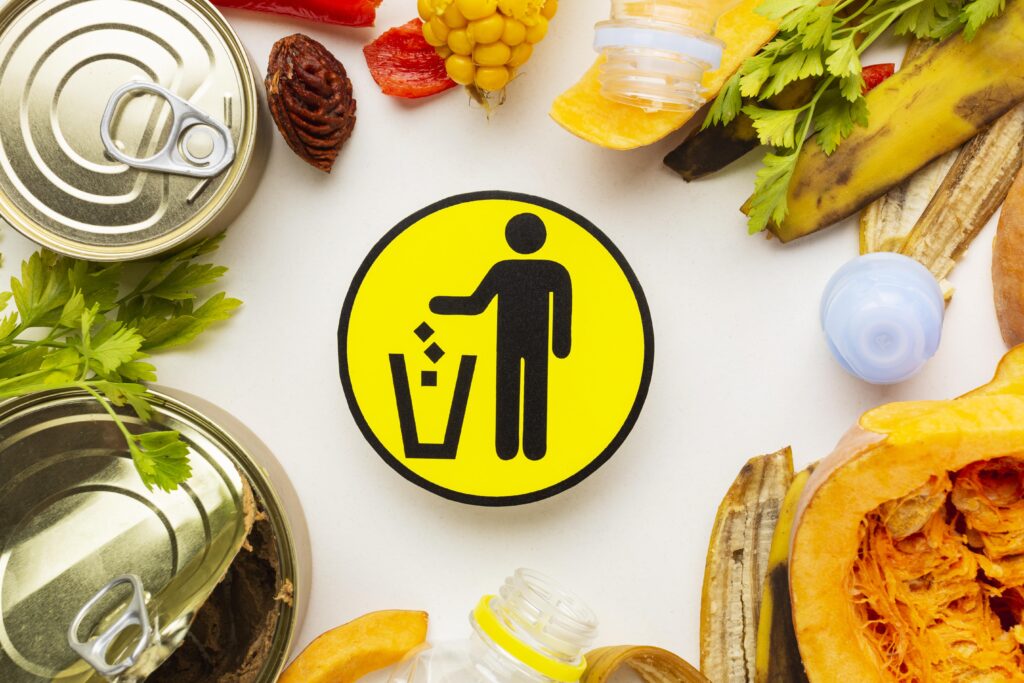Learn about the realities that will alter your attitude toward food loss in India.

The Food and Agriculture Organization of the United Nations (FAO) published a report in 1996 that showed enough food was being produced to satisfy the demands of the whole world’s population. But after 20 years, 194.6 million people in India alone still experience daily hunger. This raises the question, “Why can’t we still feed everyone?”
The uneven distribution of resources is one of the key reasons why we still cannot feed everyone. Those who have access to land and water can generate more food since they are necessary for agriculture. Unfortunately, a large portion of the population in developing nations lacks access to these resources, which restricts their capacity to grow adequate food for their families and themselves. Hunger is caused by a number of important factors, including poverty. Even when food is accessible, those who live in poverty frequently cannot afford to buy enough of it. If we wish to guarantee that everyone has access to the food they require for survival, we must solve these challenges.
While it is true that we are producing more food per person than we were two decades ago, it is essential to note that other factors contribute to the scarcity of food for a significant portion of the population. These factors include the uneven distribution of resources such as land and water, poverty, and food waste. Food waste is one of the most pressing issues facing the world today.
We must address these issues to ensure that everyone has access to the basic human right to food. We can work towards a world where no one goes hungry by implementing sustainable farming practices, improving resource distribution, and reducing food waste.
According to the Food and Agriculture Organisation (FAO), a staggering one-third of the world’s food production is wasted. This amounts to a shocking 1.3 billion tonnes of food being squandered annually, resulting in over USD 750 billion in losses. Unfortunately, India is one of the major culprits in this global crisis, with up to 40% of its food production going to waste. This translates to losses of over USD 8.3 billion, a staggering amount in a country where more than 190 million people suffer from food insecurity and hunger daily.
The wastage of food in India is a tragedy that cannot be ignored. It is a country where millions of people struggle to put food on the table, and yet, a significant portion of the food produced is wasted. This is not only a moral issue but also an economic one, as the losses incurred due to food waste are enormous. It is high time that we take action to address this issue and ensure that food is not wasted but reaches those who need it the most.
As a global community, we must work together to reduce food waste and ensure that food is distributed equitably. This requires a concerted effort from all stakeholders, including governments, businesses, and individuals. We must adopt sustainable practices that reduce food waste, such as better storage and transportation methods, and encourage the use of surplus food for charitable purposes.
In conclusion, the wastage of food in India and around the world is a pressing issue that demands our attention. Food waste has negative impacts not only on the environment but also on the economy and society. It leads to the loss of valuable resources and contributes to greenhouse gas emissions. Moreover, it deprives millions of people of access to food, exacerbating hunger and poverty. Therefore, we must take concrete steps to reduce food waste and ensure food security for all. We must take action to address this crisis and ensure that food is not wasted but reaches those who need it the most. By working together, we can create a more equitable and sustainable food system that benefits everyone.
Why is food being wasted?
The Green Revolution was a successful initiative that helped India overcome its food scarcity issues to a great extent. However, it also brought forth a new problem—the problem of plenty. Unfortunately, certain sections of society have not been able to benefit from this, which is a tragedy in itself. The problem of plenty has led to a significant amount of food waste in India, primarily due to inappropriate supply chain management and a lack of storage facilities. Shockingly, around 40% of fruits and vegetables and 20% of food grains do not reach consumers due to these issues. Moreover, tonnes of prepared food is wasted by hotels, during weddings and other social gatherings, and even in households.
Have you ever thought about the amount of food you leave on your plate when you go to a restaurant? While it may seem harmless to leave behind a little food after you’re full, imagine the magnified impact of this habit over the years.
It’s crucial to understand that food waste has a ripple effect on other sectors as well. In India, for instance, the wastage of rice also results in the wastage of water used to grow paddy and electricity used to bring water to the field. Additionally, it even results in a waste of manpower.
To combat this issue, it’s essential to implement effective supply chain management and storage facilities. Moreover, individuals can play their part by being mindful of their food consumption and avoiding waste. By taking small steps, we can collectively make a significant impact on reducing food waste and ensuring that everyone has access to the food they need.
What are ways to minimize excess consumption?
To combat the pressing issue of food waste, laws must be formulated to regulate the disposal of unused food. The French Parliament has taken a step in the right direction by passing a bill prohibiting supermarkets from throwing away unused food. Instead, they are required to collaborate with concerned organisations to redistribute the surplus food.
While it is the government’s responsibility to enact such laws, there are also steps that individuals can take to reduce food waste. By planning meals carefully, purchasing only necessary perishable items, avoiding excess food preparation, starting with small servings, and making a habit of finishing the food on our plates, we can all contribute to addressing the food crisis in India.
Although India has made progress in the 2015 Global Hunger Index, ranking 55th, there is still much work to be done. Achieving zero hunger as part of the Sustainable Development Goals (SDGs) and implementing a successful food safety program requires addressing issues such as food waste as soon as possible.





Leave a Reply